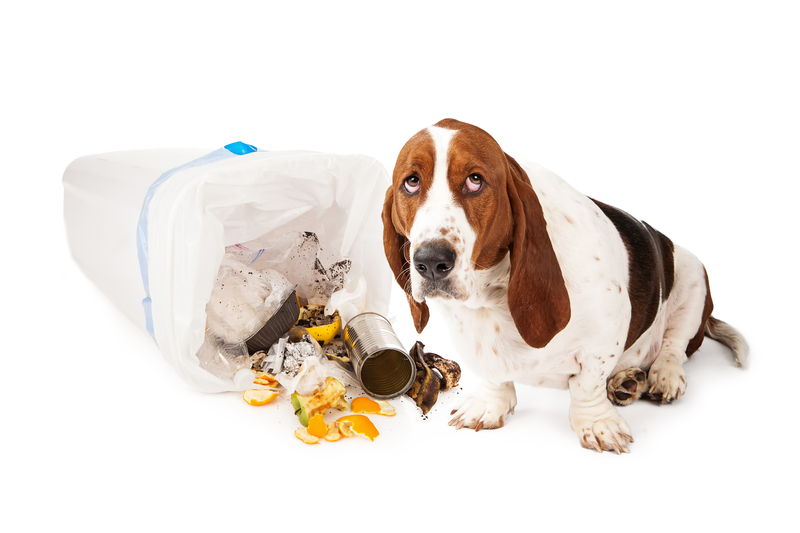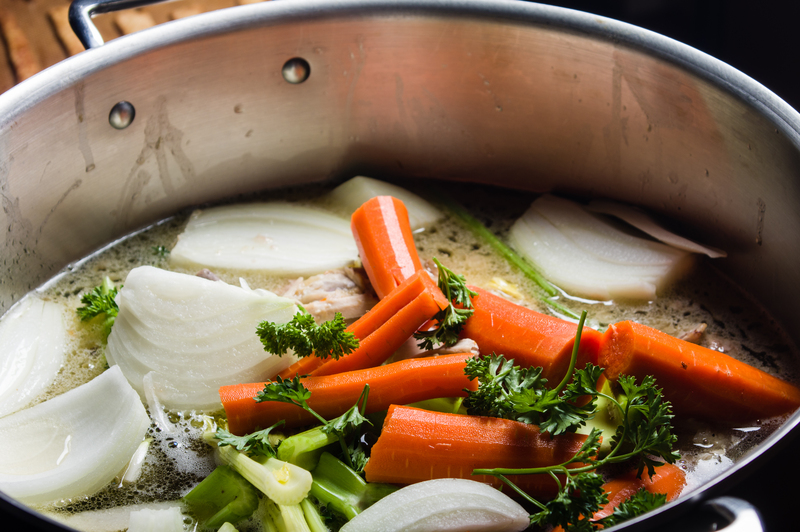Where to Take Your Old Pots and Pans for Recycling
Are you looking to recycle old pots and pans but don't quite know where to begin? Disposing of kitchenware responsibly is crucial for the environment and often simpler than you might expect. In this comprehensive guide, we'll explore the best options for recycling outdated cookware, so your old pots and pans can find new life rather than ending up in the landfill. Whether your pans are aluminum, steel, cast iron, or non-stick, there are eco-friendly solutions available.
Why Properly Disposing of Old Pots and Pans Matters
Millions of non-biodegradable cookware items end up in landfills every year, taking hundreds of years to decompose. Many recyclable pots and pans are made from metals that can be reused endlessly without losing quality. By ensuring your old cookware is recycled, you help conserve natural resources, reduce pollution, and support a sustainable future.

Can Pots and Pans Be Recycled?
A question that often arises is, "Can old pots and pans be recycled?" The answer is usually yes, but with a few caveats. Most traditional cookware is made from metals--such as aluminum, stainless steel, or cast iron--which are all highly recyclable. However, certain materials and coatings (like non-stick Teflon, bakelite handles, or enamel) may complicate the process.
- Aluminum pans: Highly recyclable, even with minor scratches and dents.
- Stainless steel cookware: Widely accepted at metal recycling centers.
- Cast iron pots: Extremely durable and valuable--their scrap can be recycled or repurposed.
- Non-stick pans: Many facilities accept them, but coatings like Teflon may require removal.
- Copper pans: Easily recyclable, though check for handles or parts made of other materials.
Before recycling, check with your local facility about their requirements for cookware recycling; you might need to remove non-metal parts first.
Where Can You Recycle Pots and Pans?
Let's dive into the best options to recycle cookware near you. Below are some detailed avenues to consider for disposing of your old pots and pans the green way.
1. Municipal Recycling Centers
The first stop should always be your local municipal recycling center. Many cities and counties operate recycling depots that accept small household metal items. Here's how to make use of this service:
- Check Accepted Items: Visit your city's waste management website to confirm they accept metal cookware.
- Preparation: Remove plastic or wooden handles, lids, or accessories that aren't metal. Some centers only accept pure metal pieces.
- Drop Off: Bring the clean, separated metal pieces to the drop-off location or include them with curbside scrap metal collection (if offered in your area).
If unsure, contact the recycling center directly to ask about protocols for recycling old pots and pans.
2. Scrap Metal Yards
If your municipal facility doesn't accept cookware, a scrap metal yard is your next best option. Most towns have a scrap yard that pays for ferrous and non-ferrous metals. Here's how to proceed:
- Sort by Metal: Separate aluminum from stainless steel and cast iron if possible. Scrap yards may pay different rates for each type.
- Bring in Bulk: Consider collecting additional metal items (like old baking trays, metal utensils, and broken appliances) to make your trip worthwhile.
- Ask About Policies: Some yards may want non-metal parts removed beforehand. Others will strip these for you, deducting a small fee.
To find a scrap metal recycling yard nearby, use Google Maps or visit online resources like Earth911.
3. Curbside Recycling Programs
A handful of local curbside recycling programs accept smaller metal household items with your regular collection. Here's what to do:
- Review Guidelines: Check your city's recycling calendar or website for information about metal cookware recycling eligibility.
- Condition: Clean your cookware and remove any non-metal parts as instructed.
- Size: Only small to medium cookware is generally allowed. Larger items should still be taken to a recycling center or yard.
Not all areas support this, so call your provider if you're unsure.
4. Retail Take-Back Programs
Some major retailers understand the importance of responsible recycling and offer take-back programs for old cookware. Here's how to participate:
- Check Store Policies: Retailers like Bed Bath & Beyond or community hardware stores may sponsor recycling days or offer mail-in options for cookware disposal.
- Brand-Specific: Companies such as GreenPan and Calphalon sometimes feature recycling initiatives for their branded products.
- Drop Off: Bring in your old pots, pans, and utensils during designated events.
Retail programs frequently offer discounts or incentives for turning in older items, giving you additional value for your responsible actions!
5. Donation and Reuse Options
If your cookware is still functional, it might be better suited for reuse rather than recycling. Here are a few ideas:
- Charity Thrift Stores: Places like Goodwill, Salvation Army, or local church shops usually accept gently used pots and pans.
- Community Centers and Shelters: Women's shelters, homeless outreach programs, and community kitchens often appreciate donations of usable kitchenware.
- Online Groups: Platforms like Freecycle, Facebook Marketplace, or Craigslist are excellent for giving away items for free to someone who can use them.
Donating extends the life of your cookware, saves resources, and supports your community.
6. Upcycling: Give New Life to Old Cookware
Feeling creative? Upcycling is a fun way to keep non-recyclable pots and pans out of the landfill:
- Planters: Drill holes in the base for drainage and turn them into quirky plant pots for your home or garden.
- Storage Containers: Use them to organize miscellaneous items in the garage or kitchen.
- Art Projects: Create wall hangings, clocks, or wind chimes.
With a little imagination, your old cookware can be transformed into practical or decorative household items.
Which Types of Pots and Pans Are Most Easily Recycled?
To make recycling simpler, it's helpful to know which materials are most commonly accepted:
- Stainless Steel: Most widely recycled, as it is used in many products and easily sorted by magnetic properties.
- Aluminum: In high demand due to its light weight and versatility.
- Cast Iron: Heavier but extremely durable--can often be sold for scrap.
- Copper: Valued for its conductivity and used in specialty cookware; be sure to separate from non-metal parts.
Items coated with non-stick surfaces or made with mixed materials (plastic/metal) may require additional processing, but many recycling centers can still accept them with prior arrangement.
Items to Avoid Putting in the Recycling Bin
While pots and pans are largely recyclable, there are exceptions:
- Teflon-Coated Cookware: Many curbside programs do not accept these due to the chemicals involved. Specialized recycling or trash disposal may be needed.
- Glass, Ceramic, and Stoneware: These items cannot be recycled with metals and need alternative solutions.
- Pots with Extensive Plastic Components: Remove handles and lids before recycling the metal parts.
How to Prepare Your Cookware for Recycling
For the most effective recycling process, follow these preparatory tips:
- Clean Thoroughly: Remove all food residue and grease. This helps prevent contamination during processing.
- Disassemble When Possible: Take off any non-metal pieces such as handles, knobs, or lids. Recycle plastic or wood components separately, if possible.
- Check for Markings: Look for recycling symbols or numeric codes, particularly on aluminum items; this can assist recycling staff in proper sorting.
Eco-Friendly Alternatives: What to Do If You Can't Recycle Locally
If your local recycling center or scrap yard won't accept your old kitchen pans, consider the following:
- Mail-Back Recycling Programs: Some third-party organizations specialize in accepting cookware via mail, particularly for non-stick or specialty items. Research companies with green certifications and transparent recycling practices.
- Special Collection Events: Municipalities occasionally hold household hazardous waste or bulky items collection days for tough-to-recycle materials. Check your local government's waste management announcements.
- Creative Repurposing: When in doubt, upcycle or donate whenever possible.
Common Questions About Recycling Old Pots and Pans
- Do I need to remove the handles before recycling? Yes. Separation makes it easier for recyclers to process your items.
- Can non-stick pans be recycled? Some facilities accept them, but not all. Coated cookware often requires specialized recycling. Contact local centers to clarify.
- Are pots and pans accepted in blue bins? Rarely. Blue bins are for common recyclables like cans and bottles. It's best to take cookware to a designated metal recycling drop-off.
How to Find a Recycling Center Near You
Not sure where to take your old kitchen pans for recycling? Use these resources:
- Earth911.com: Enter your zip code and the item you wish to recycle for local options.
- RecycleSearch: Connects you with verified recycling drop-offs.
- Municipal Waste Websites: Most cities provide lists and maps of recycling centers.
- Google Maps: Search for "metal recycling near me" or "scrap yard near me."
Environmental Benefits of Recycling Old Cookware
The environmental impact of recycling old pots and pans is significant:
- Reduces landfill waste: Metal cookware can take centuries to break down. Recycling keeps them out of the landfill.
- Saves natural resources: Recycled metal requires less energy than mining and refining new ore.
- Supports circular economy: Metal can be reused indefinitely, reducing the need for raw material extraction.
By responsibly disposing of your old cookware, you're making a positive difference--both for your local community and the global ecosystem.

Summary: The Best Places to Recycle Pots and Pans
To recap, here are your top options for eco-friendly cookware disposal:
- Municipal Recycling Centers: Fastest, most convenient solution--always check their rules.
- Scrap Metal Yards: Yields better value for larger quantities or valuable metals.
- Retail Take-Back Programs: Convenient for consumers upgrading cookware, with possible discounts.
- Donation: Ideal for pans still in usable condition--help your community!
- Upcycling: Turn pans into creative home and garden projects.
Remember, proper preparation--cleaning, disassembling, and sorting--ensures the greatest recycling success. Don't forget to check local guidelines as they may differ from one city or county to the next.
Conclusion
If you've been asking, "Where to take old pots and pans for recycling?"--now you have an abundance of responsible choices. From municipal facilities and scrap yards to retail take-back programs and community donation, recycling and reuse are within easy reach. Consider your local options, prepare your cookware as needed, and make the green choice for the planet.
Start today and turn those old pots and pans into a win for both your kitchen and the environment!